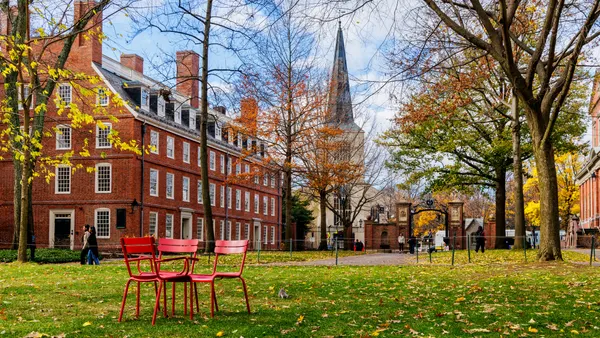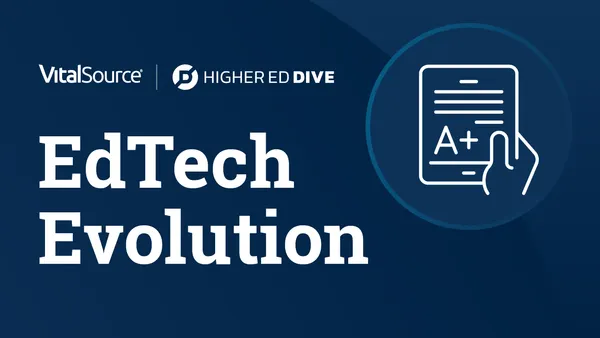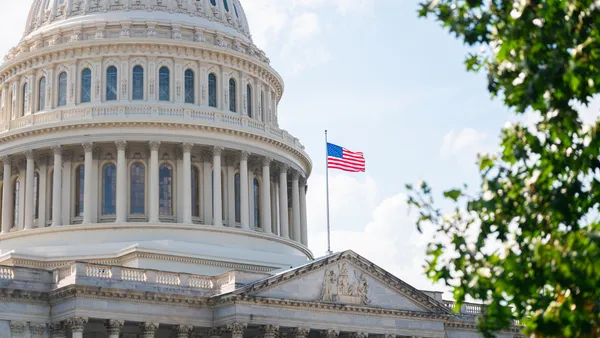UPDATE: March 16, 2022: Gov. Ron DeSantis, a Republican, signed legislation Tuesday making Florida public colleges' presidential searches secret until their final stages. DeSantis' office did not release a statement on the new law.
It takes effect immediately.
Dive Brief:
- Florida's Legislature approved a bill last week that would make secret the identities of presidential applicants to the state's public four-year and community colleges until a search's final stages.
- It now heads to the desk of Gov. Ron DeSantis, a Republican. The proposal required the approval of at least two-thirds of each of the two legislative chambers to pass, as it created a new public records law exemption.
- Bill proponents argued that publicly naming presidential contenders dissuades them from applying, as their current employment may be jeopardized. Its detractors said it is an unnecessary measure that would obscure search processes.
Dive Insight:
Lawmakers have tried for years to push through a bill that would change the nature of presidential searches in Florida.
Presidential candidates' names currently are subject to open records laws. But once DeSantis signs the bill, which is expected, presidential hiring procedures at Florida's public institutions will become what are known as closed searches, in which colleges don't broadly disclose the names of presidential candidates.
The bill would shield the names of presidential applicants until public colleges establish their finalists or at least 21 days before either a finalist's interview or an employment offer.
Closed searches have become more widespread in recent years, particularly at private institutions. About three-fifths of private colleges have closed searches, compared to roughly one-quarter of public colleges, according to a recent American Association of University Professors report.
Researchers have not found evidence that open searches suppress the volume of presidential applicants. In fact, often college chief executives maintain employment contracts that provide them with significant perks if they're fired without cause, according to Judith Wilde and James Finkelstein, academics who have studied presidential searches.
Nevertheless, the Florida bill cites the argument that searches would be chilled — it says prospective presidents may "fear the possibility of losing their current jobs as a consequence of attempting to progress along their chosen career path or simply seeking different and more rewarding employment."
State lawmakers said colleges' governing boards had called for private presidential searches, according to news reports. Neither the State University System of Florida nor the Florida College System responded to requests for comment.
It would also lift the blackout on demographic information on presidential candidates at that time.
Several hunts for Florida college presidents are ongoing, including at the University of Florida and Florida International University.
The state has been the site of several controversial searches, with observers fearing they were skewed toward political insiders. Richard Corcoran, a former Florida lawmaker and now the state's education commissioner, failed to advance as a candidate for the Florida State University presidency after the institution publicly released a list of hopefuls.
The institution's accreditor had flagged a potential conflict of interest because Corcoran served on the governing board that approves public college presidents.
Initially, the Florida bill would have taken effect July 1. The newest version would take effect immediately after becoming law.













